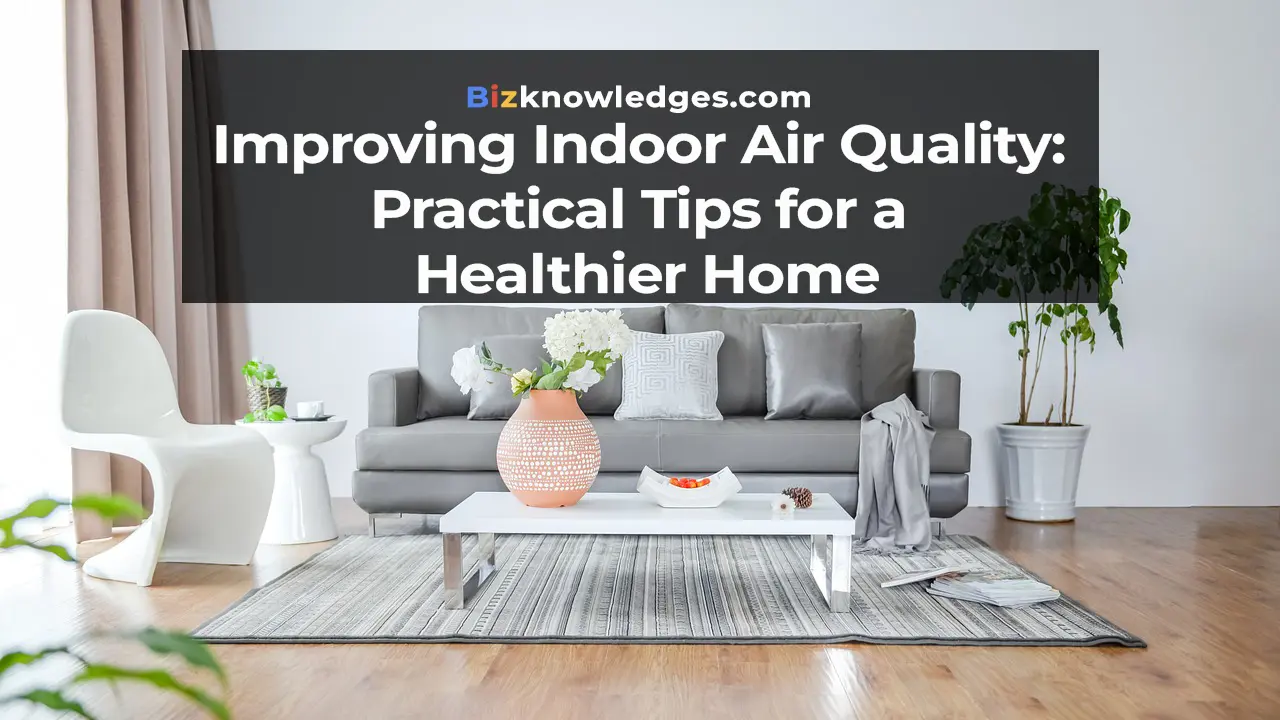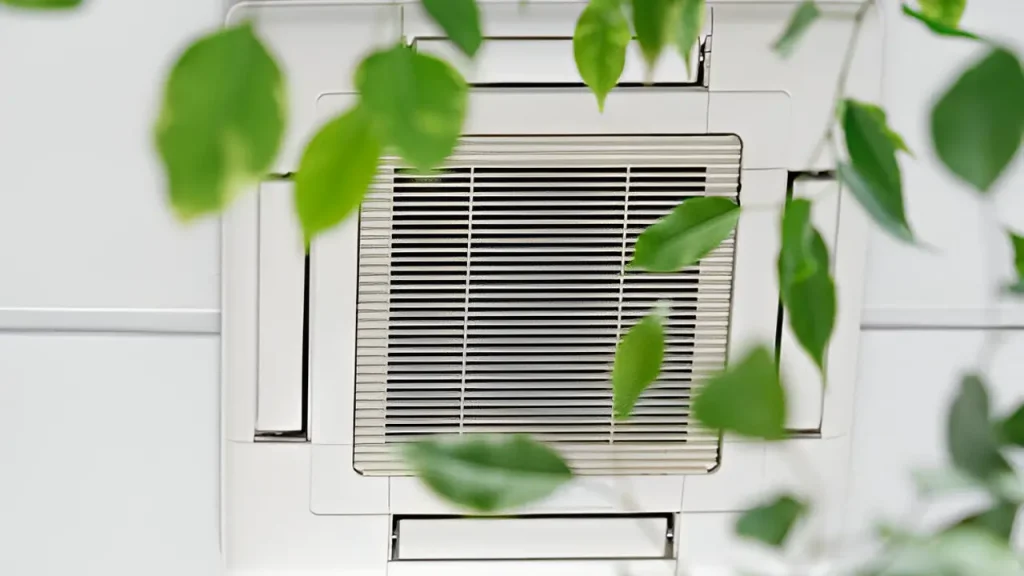Improving Indoor Air Quality: Practical Tips for a Healthier Home

Understanding Indoor Air Quality
The quality of indoor air (IAQ) is about the state of the air in your house and how it affects your health and comfort. Inadequate indoor air quality can cause numerous health issues, such as breathing problems, allergies, and potential heart conditions. A great way to understand IAQ in your local area is to explore resources like those provided by experts on indoor air quality Olympia, WA. It is essential to be conscious of the factors impacting indoor air quality and ensuring it is clean and healthy. Research indicates that indoor air quality can be twice to five times worse than outdoors, underscoring the importance of identifying and managing different sources of pollution.
Familiar Sources of Indoor Air Pollutants

Multiple sources can add to indoor air pollution in Olympia, WA, impacting the air quality in residential and commercial spaces. Common contributors include:
- Mold: Thriving in damp areas like bathrooms and basements, mold can release spores that impact respiratory health.
- Dust Mites: Often found in bedding, upholstery, and carpets, dust mites are a frequent allergen.
- Pet Dander: Allergens from pets can accumulate in the air, especially in households with animals.
- Household Chemicals: Cleaning products, paints, and other chemicals can emit volatile organic compounds (VOCs), compromising air quality.
- Tobacco Smoke: A significant indoor pollutant, tobacco smoke contains thousands of harmful chemicals that can linger in the air.
Merely performing everyday activities such as cooking and cleaning can result in the emission of additional pollutants. Identifying these sources is crucial for effectively managing and improving indoor air quality (IAQ) in Olympia, ensuring a healthier environment for residents.
Effective Ways to Improve Indoor Air Quality
Improving indoor air quality doesn’t have to be complicated. Here are some practical steps you can take:
- Vacuum and dust your home frequently to reduce allergens and dust mites. Use a vacuum with a HEPA filter to capture the smallest particles.
- Use non-toxic cleaning products to minimize chemical pollutants. Natural cleaning solutions or those labeled as low-VOC are great alternatives.
- Avoid smoking indoors to prevent tobacco smoke from contaminating the air. Encourage smokers to step outside and designate smoking areas away from windows and doors.
- Wash bedding and curtains regularly in hot water to eliminate dust mites. Consider using mattresses and pillows covered with covers that are impenetrable to allergens.
- To prevent mold growth, keep humidity levels within 30% to 50%. Dehumidifiers and air conditioners help keep up with these measurements.
Importance of Ventilation
Good IAQ relies on proper ventilation. Ensuring fresh air circulates throughout your home helps dilute indoor pollutants and reduce their concentrations. Simple measures like opening windows and using exhaust fans in the kitchen and bathroom can significantly enhance ventilation.

Mechanical ventilation systems like whole-house fans or energy recovery ventilators can improve airflow and air quality as well. Adequate airflow not only decreases pollutant levels but also manages moisture, which helps prevent the development of mold and mildew. Air filtration systems in regions with poor outdoor air quality are recommended to supply fresh air while avoiding outdoor pollutants.
Using Air Purifiers and Plants
Air purifiers are a valuable method for eliminating air contaminants. Choose a cleaner with a HEPA filter, which can capture tiny particles like dust, pollen, and smoke. Room air cleaners can significantly improve air quality in specific areas, especially where you spend most of your time, such as bedrooms and living rooms.

Additionally, certain houseplants can help enhance air quality by absorbing toxins and releasing oxygen. NASA has extensively researched the NASA Clean Air Study, identifying spider plants, peace lilies, and bamboo palms that effectively remove common indoor pollutants.
Maintaining Your HVAC System
Your HVAC system is essential for controlling indoor air quality. Routine upkeep, like replacing air filters and scheduling a yearly service with an experienced Midland TX AC repair professional can help to prolong and maximise effectiveness of your cooling unit. Unclean filters can contribute to indoor pollution by spreading dust and other pollutants. An EPA study emphasizes the importance of maintaining HVAC systems for healthy IAQ. Also, could you consider cleaning your air ducts to remove accumulated dust and debris?
Regular Cleaning and Maintenance
Maintaining cleanliness in your home is essential for ensuring good indoor air quality (IAQ). Frequently cleaning carpets, curtains, and bedding can decrease allergens and pollutants. Using a vacuum that has a HEPA filter can also be advantageous. In addition, promptly addressing any water damage or mold issues is vital to prevent the growth of harmful mold spores.
Consider using environmentally friendly cleaning products that do not emit harsh chemicals into the air. Regularly wash pet bedding and groom pets to minimize dander in the home. An organized and clutter-free home can reduce dust accumulation and make regular cleaning easier. Simple tasks like wiping down surfaces and cleaning windows can significantly improve air quality. If you spot any dark spots or have a musty smell, it’s probably worth looking into mold inspection in Lowell, MA, or your local area, to get it checked out and cleaned up properly.
Final Thoughts
Improving indoor air quality requires consistent effort and commitment. By adhering to basic practices like regular cleaning, adequate ventilation, and utilizing air purifiers, you can enhance the well-being of your home environment for both you and your loved ones. Remember that your health can be impacted by the air quality you breathe, so it’s crucial to invest time and resources into maintaining good indoor air quality.
Being aware and taking action can assist in ensuring your home is a secure and healthy environment in which to reside. Living in a busy urban area or a peaceful neighborhood, improving indoor air quality benefits everyone. Begin with minor modifications and slowly incorporate additional tactics to preserve a clean and healthy indoor environment for yourself and your family.
